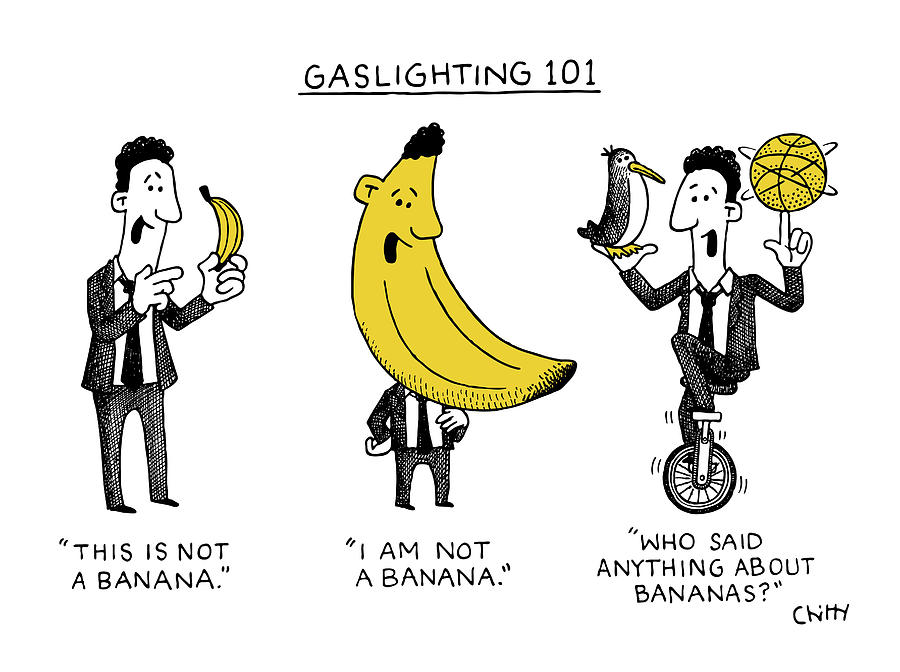Good Things Utah interview at Mountain Valley Counseling in South Jordan Utah.
Our owner and founder Misty Newman, CMHC and Clinical Director Marquie Meli, CMHC met with Good Things Utah to discuss mental health in Utah. We specialize in Complex Trauma and PTSD. We see people across the lifespan and also work with couples and families. We can do in person or telehealth visits. And we take insurance! We accept Select Health, Aetna, DMBA, EMI, Blue Cross, PEHP, University of Utah Health Plans and Huntman Mental Health Institute plan. Give us a call 435-565-1305 to get scheduled. https://www.abc4.com/gtu/gtu-sponsor/mountain-valley-counseling-focuses-on-improving-mental-wellness-in-utah/
Are Utahns lonely?
Exploring Utah’s Loneliness Epidemic According to a recent survey, 42.5% of Utahns report feeling lonely at least sometimes, a rate that surpasses the national average of 40.3%. While loneliness is often overlooked, it’s a powerful factor influencing mental health, and one that deserves urgent attention—especially in a state known for its strong community values. Why Are So Many Utahns Feeling Lonely? Despite Utah’s reputation for family-centered culture and community engagement, several unique challenges may be contributing to this growing isolation: Population Growth and Transience: Utah is one of the fastest-growing states in the nation. With many new residents relocating for work or education, it can be difficult to build meaningful social ties. Rural Communities: For those living in more isolated, rural parts of the state, physical distance can translate into emotional distance. Stigma Around Vulnerability: Some Utahns may feel pressure to maintain a façade of strength or perfection, making it…
April is Counseling and Stress Awareness Month
🌿 April is About Awareness — and Support At Mountain Valley Counseling, we’re proud to honor Counseling Awareness Month and Stress Awareness Month. This month, we celebrate the life-changing impact of mental health counseling and raise awareness about the effects of stress on our well-being. We believe that everyone deserves support, not just during difficult times, but as part of everyday self-care and growth. 💙 Counseling Awareness Month We recognize the dedication, compassion, and expertise of counselors everywhere — and right here at Mountain Valley. Our team is committed to creating a space where healing and personal transformation can happen, one conversation at a time. Whether you’re facing anxiety, life transitions, relationship issues, or just feeling stuck — counseling is a powerful tool for clarity, healing, and resilience. There is not shame in pursuing counseling, in fact, it’s really proactive and brave. 🧠 Stress Awareness Month Stress affects us all…
Why History Repeats Itself: Understanding the Psychology Behind Our Collective Amnesia and the Rise of Cult-like Mentalities in Modern SocietyMountain Valley Counseling History has a way of repeating itself. We see it in the political cycles, in cultural conflicts, and even in the psychological patterns that shape society. But why does this happen? And more importantly, why do we forget the lessons of history, often making the same mistakes over and over again? This blog aims to explore the psychological mechanisms behind these patterns, focusing on the collective amnesia in modern society, the rise of cult-like mentalities, and the role social media algorithms play in promoting divisiveness and blurring the lines between truth and falsehood. The Repetition of History: Psychological Underpinnings History’s repetitive nature can be understood through the lens of cognitive psychology. One key concept that helps explain this phenomenon is cognitive biases—mental shortcuts our brains use to process…
Ketamine Therapy Group coming to MVC in March.
Exploring Ketamine Assisted Psychotherapy at Mountain Valley Counseling: A New Group Therapy Experience Starting in March 2025 Mental health challenges such as depression, anxiety, PTSD, and chronic pain often feel overwhelming, and despite treatment, many individuals find it difficult to experience lasting relief. Traditional therapies and medications may not always provide the results that individuals seek, leaving many in search of alternative options that offer deeper, more profound healing. That’s where ketamine-assisted psychotherapy (KAP) comes in. At Mountain Valley Counseling, we are excited to announce the launch of our new KAP group therapy sessions, beginning in March. This innovative treatment combines the healing properties of ketamine with the power of psychotherapy, providing a unique opportunity for personal growth and emotional healing. What is Ketamine-Assisted Psychotherapy? Ketamine has long been recognized as an effective anesthetic, but in recent years, it has gained recognition as a promising treatment for mental health…
Great book recommendations to start out 2025 from Misty Newman, CMHC
As we begin 2025, there’s no better way to reflect, heal, and grow than through reading. For anyone interested in personal development, mental health, and emotional well-being, these books are exceptional starting points. They provide powerful insights and practical tools to navigate life’s complexities. Here’s a brief look at each one: “The Drama of the Gifted Child” by Alice Miller Alice Miller’s classic work explores how early emotional neglect can shape the lives of gifted children, often leading to internal struggles in adulthood. This book is essential for understanding how unresolved childhood trauma—often masked by outward success—can manifest in adulthood, making it an eye-opening read for those interested in understanding their emotional patterns and healing from past wounds. “What My Bones Know” by Stephanie Foo A profound memoir and exploration of complex PTSD, this book reveals Stephanie Foo’s journey through trauma and healing. It’s a personal and powerful narrative that…
As we approach a new year, it’s natural to reflect on the past and consider how we can make positive changes moving forward. As a mental health counselor and owner of Mountain Valley Counseling, I want to offer a few thoughts on how we can prioritize our mental well-being in the coming year. First, it’s important to recognize that mental health is just as crucial as physical health. In fact, the two are deeply intertwined. Just as we schedule regular check-ups for our bodies, it’s vital to regularly check in on our emotional and psychological well-being. This can mean anything from seeking therapy, to setting healthy boundaries, to practicing self-care routines that help us manage stress and emotions. The start of a new year can feel like a fresh start, but it’s important to remember that true growth takes time and patience. If you’ve struggled in the past, be gentle…
The Difference Between Complex PTSD and PTSD By Misty Newman, CMHC, Owner of Mountain Valley Counseling Post-traumatic stress disorder (PTSD) is a well-known mental health condition that can develop after an individual experiences or witnesses a traumatic event. However, not all trauma experiences lead to PTSD, and in some cases, trauma can result in a more complex form of the disorder known as Complex PTSD (C-PTSD). While both conditions involve symptoms of trauma, they differ in their causes, symptoms, and impact on a person’s life. Understanding these distinctions is crucial for proper diagnosis and treatment. PTSD (Post-Traumatic Stress Disorder) PTSD typically results from a single traumatic event, such as a car accident, natural disaster, physical assault, or combat exposure. It can also occur after witnessing a traumatic event. Symptoms of PTSD often include: Intrusive memories: Flashbacks or vivid, distressing memories of the event. Avoidance: Avoiding reminders of the trauma, such…
Small group practices vs. big tech. A good old fashioned David and Goliath scenario.
The Value of Small Group Practice in Mental Health Therapy: A Perspective from Mountain Valley Counseling owner Misty Newman, CMHC By Misty Newman, CMHC In recent years, the landscape of mental health care has seen a significant shift with the rise of teletherapy platforms like BetterHelp. While these services offer convenience and accessibility, they often reduce therapy to a mere transaction—a commodity in a marketplace driven by profit. As the owner of Mountain Valley Counseling, I believe that true mental health therapy transcends this transactional model. Instead, it thrives on the strength of the therapeutic relationship and the nuanced understanding that only a well-trained therapist can provide. The Dangers of Commodifying Mental Health The commodification of mental health services is alarming. Venture capitalists have recognized the profitability of therapy and have pushed for solutions that prioritize rapid, low-cost access over genuine healing. However, mental health care cannot be adequately addressed…
Understanding Gaslighting and Its Impact on Mental Health Gaslighting is a form of psychological manipulation where a person or group seeks to make someone doubt their own perceptions, memories, or reality. This term, derived from the 1944 film “Gaslight,” where a husband manipulates his wife into questioning her sanity, has become a widely recognized concept in discussions of emotional abuse and manipulation. Gaslighting can occur in various relationships, including romantic partnerships, friendships, family dynamics, and workplace settings. Definition and Mechanisms of Gaslighting Gaslighting involves a series of manipulative tactics aimed at undermining the victim’s sense of reality. These tactics include denying facts, minimizing the victim’s feelings, and presenting false information as truth (Stark, 2018). The ultimate goal is to destabilize the victim’s perception of reality, thereby gaining control and power over them. Gaslighters often use subtle and gradual methods to erode the victim’s confidence in their own thoughts and…










